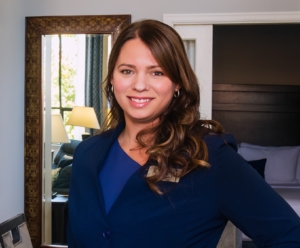It is not clear when Johann Sebastian Bach premiered his Orchestral Suite No. 3, but it most certainly would have comprised an evening’s entertainment at Leipzig’s famed Café Zimmermann. Bach served as Cantor at Leipzig’s St. Thomas Church and its associated music school. He was also the director of the Collegium Musicum, a performance society comprised of some professional musicians alongside students from the University of Leipzig. On a typical Friday night between 1729 and 1741, they would hold a “meeting” at Zimmermann’s coffee house and give a performance that was free to the public. Audiences might have enjoyed works for small ensembles, choral and vocal pieces (including the “Coffee” Cantata, of course) and the occasional piece for chamber orchestra.
Bach’s orchestral suites comprise a series of shorter, courtly dances preceded by more grandly scaled French overture. In fact, Bach himself referred to his four suites as “Ouvertures,” following the example of French composers such as Lully and Rameau. When they compiled individual movements from their ballets or operas for a concert performance, the overture to the complete work was included as the suite’s first movement. Alongside strings and continuo in the opening movement of Suite No. 3, the musical punctuation of the oboes, trumpets and timpani evoke images of a regal procession. The opening French overture serves as a solemn introduction with its characteristic slow, dotted rhythm followed by a more lively fugue. The much-loved Air is next, with its walking bass-line and a long, lyrical melody played by just the strings and continuo. Its status a much-loved musical bon-bon is thanks to a German violinist, August Wilhelmj, who published his arrangement of it in 1871 under the title “Air on the G String.” A pair of Gavottes are then presented in alternation, followed by a Bourrée and a lively Gigue, the most frequent conclusion to any set of dances.
Leader and violin soloist Julia Wedman takes this opportunity to shine a light on Maria Margherita Grimani – the first woman to have her opera performed at the Vienna Court Theatre – and Anna Maria “dal Violin” – an orphan at the Ospedale della Pietà in Venice who, under the guidance of Antonio Vivaldi, went on to become a famed violin soloist.
It’s interesting that as far back as 1980, Grimani’s three-part Sinfonia had been recorded by the New England Women’s Symphony, led by Jeanne Lamon. Ms. Lamon subsequently mentored generations of baroque specialists (Julia Wedman among them) as the leader of Tafelmusik. Very little is known of Grimani’s early life, beyond being born in 1680 as Maria Margherita Vitalini, and her marriage to Giovanni Andrea Grimani (1672—1723), Doctor of Law, lawyer and lecturer at the University of Bologna. She was an accomplished baroque violinist and composer, who evidently earned the attention of the Vienna court of Charles VI, Holy Roman Emperor and ruler of the Austrian Habsburg monarchy. Her surviving manuscripts consist of two oratorios (The Visitation of Elizabeth and The Beheading of St. John the Baptist) and the dramatic work, Pallade e Marte, the score of which is inscribed “April 5, 1713, Bologna.” It was staged in November of that year at the Imperial court on the name day of the emperor, with a soprano and alto soloist in the role of two deities who take it in turn to praise the Emperor. The opening sinfonia featured today provides a brief taste of Grimani’s underexposed but no less delightful work.
Grimani’s relatively short life stands in contrast to that of Anna Maria “dal Violin,” who arrived at the Ospedale della Pietà as an orphan in the late 1690s, delivered secretly through a small hatch. She spent her entire life of more than 82 years at the Pietà, firstly as one of Vivaldi’s most accomplished students, and subsequently as a violin soloist and teacher of further generations of female musicians. She learned to play seven instruments, and countless tourists from throughout Europe flocked to Venice to hear her performances. According to one anonymous poet, it was said that when she played, “countless angels dare to hover near.” Vivaldi wrote no less than 28 concertos especially “for Anna Maria,” including the excerpted Allegro movement from the Concerto in D minor (RV229) featured today.
George Frideric Handel began his career at the age of 17, as a church organist, and went on to play in opera orchestras in Hamburg in his native Germany. At 21, he travelled to Italy to develop his skills as a composer and before the age of 30, in 1714, he had settled in England and quickly gained fame for his opera, oratorios and instrumental suites and concertos.
The Organ Concerto in F Major was premiered in April of 1839, as an interlude at the King’s Theatre, Haymarket, during a production of Handel’s oratorio Israel in Egypt. Handel took advantage of these musical breaks in the action as an opportunity to display his virtuosity at the keyboard, frequently embellishing them with some “ad libitum” movements. Later in life, as his eyesight deteriorated, he was still able to play from memory and to improvise at the keyboard.
The F major concerto is often included in compilations of Handel’s greatest hits, perhaps owing to its catchy nickname, “The Cuckoo and the Nightingale.” Following the first movement’s slow introduction, you will be able to catch Handel’s inspiration! About a minute in, he imitates the voice of the Cuckoo with its falling interval of a third. Then after another minute, the more lyrical voice of the Nightingale is heard, marked by rapid runs and quavering, sixteenth notes.
The evening concludes with another of Handel’s greatest hits: Music for the Royal Fireworks. In 1749, the British Monarch, George II, commissioned Handel to compose a celebratory work to mark end of the War of the Austrian Succession, which had drawn on throughout Europe for more than eight years. Dozens of military instruments of both winds and percussion were assembled at a specially built pavilion in Green Park, opposite the location of Buckingham Palace. Cannon fire, rockets, and pinwheels were set up to entertain the masses of spectators. However, this was London, in late spring, and the weather was less than cooperative. Rain delays meant some effects fizzled, a woman’s dress caught fire, explosions injured some soldiers and the stage itself caught fire and burned to the ground! Handel’s festive music was the brightest element of the production. Within a month, he had revised the score to include stringed instruments and held a benefit performance that raised more than £2500 for the Foundling Hospital of London. As with Bach’s suite presented earlier, a French Overture opens the proceedings, followed by a series of baroque dances. The peace treaty itself is celebrated with the Siciliana movement, La Paix, and the public’s joyous celebration with La Réjouissance.
Notes: Matthew Baird
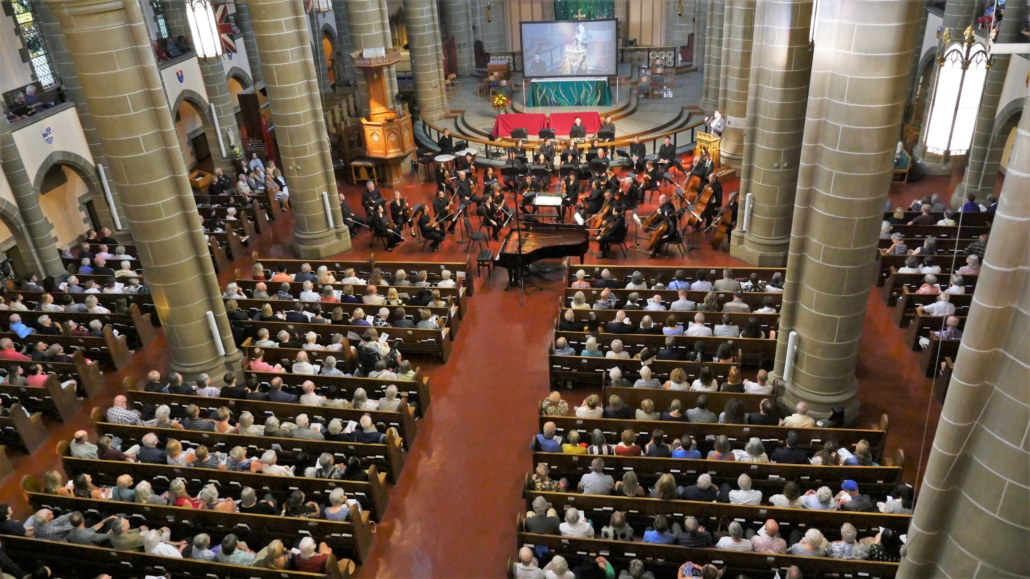


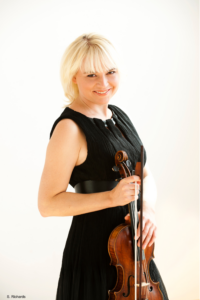 Julia Wedman, violin/leader
Julia Wedman, violin/leader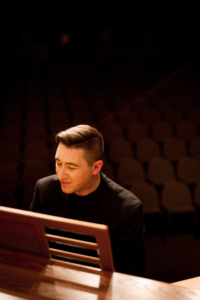 Mark McDonald, organ
Mark McDonald, organ Presenting Sponsor: 2024 Symphony in the Summer Festival
Presenting Sponsor: 2024 Symphony in the Summer Festival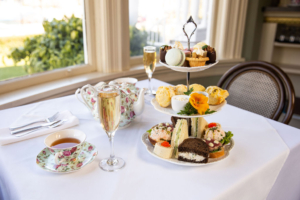
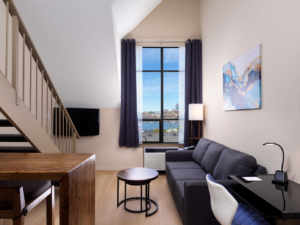 Victoria Getaway Package at the Huntingdon Hotel and Suites:
Victoria Getaway Package at the Huntingdon Hotel and Suites: